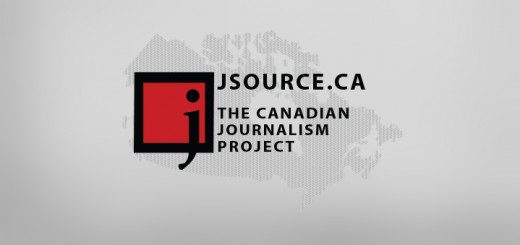Retired broadcast radio instructor George Orr said some of the poorest people on Canada’s airwaves are the personalities and reporters that listeners tune in to every day.
By Jeremy Nuttall, for The Tyee
The voice of an impoverished person can be heard at any time in most small cities and towns across Canada simply by turning on the radio. But it’s not the people interviewed on talk shows or in news sound bites who could use some extra cash.
Retired broadcast radio instructor George Orr said some of the poorest people on Canada’s airwaves are the personalities and reporters that listeners tune in to every day.
Orr taught broadcast journalism at the British Columbia Institute of Technology for 19 years before he left the profession, feeling guilty about preparing students for a career that often pays more in heartache than money.
“I couldn’t in good conscience convince young people this is a field you should walk into and find a good future,” Orr said.
According to Service Canada, in 2013 12 per cent of radio broadcasters made less than $20,000 per year and 46 per cent made between $20,000 and $49,000.
Orr said the low wages and erratic hours keep many people away from the microphone and result in high turnover, making it harder to find journalists on the airwaves with a connection to the community that leads to an understanding of local issues.
The result is journalism that is less likely to give listeners a solid grasp of local news and culture, which underserves democracy, he said.
“In small towns where there’s maybe one station and one community weekly paper, the quality of journalism is dependent on the staying power of the young person who’s got the job,” he said.
According to the Canadian Radio, Television and Telecommunications Commission, commercial radio made $1.6 billion in Canada in 2013. Despite the earnings, layoffs and hiring freezes are still common as organizations claim dropping revenues and listener numbers, pointing at the Internet as their reason for woe.
But, if passed Thursday, a federal New Democrat motion to reinstate and raise the minimum wage for federally-regulated industries, such as broadcasting, banks and railways, would mean that in five years novice broadcasters would be paid $15 an hour. The motion would apply to both private radio stations and the CBC.
The increase would still be shy of the $35,000 a year or more than $16 an hour that Orr said is likely needed to attract and retain young reporters in small communities. But it’s still higher than what most are currently offered, he said.
“There were times at BCIT when people would be offered a job and we would tell them, ‘No, you can’t take it, because it’s below the minimum wage,’” Orr said. “That’s indicative of how the industry looks at well-trained, young, ingenuous labour.”
Low wages, high hopes
Kate Leinweber was one of those people earning less than minimum wage when her salary was compared to the hours she worked at a radio station in B.C.
After getting a four-year communications degree from Mount Royal University in Calgary, Leinweber ended up in Penticton as a reporter and morning show host.
She had her face on billboards, but was making less than a fast food worker. “It seems extremely glamorous to other people, and it was definitely fun. But it was definitely not sustainable,” she said.
After realizing a part-time job at Starbucks to support her finances wasn’t possible — she was working too hard — she left the business in 2006 and now works as a massage therapist.
“After I was done working at the radio station, I ended up serving at restaurants and on average I would make $20 to $25 an hour,” she said. “And I didn’t have to wake up at 4:30 in the morning.”
Of the people she worked with in the industry, Leinweber could only think of one who still has a job in radio, eight years on. The rest switched into other careers.
NDP critic hopeful about motion
New Democrat finance critic Nathan Cullen said he thinks the motion to reinstate and raise the wage will pass because it affects a narrow group of Canadians working in federally-regulated industries.
While 820,000 Canadians work in such industries, about 100,000 of them make less than $15 an hour, according to the NDP’s data from 2008.
“This is just common sense,” Cullen said Tuesday. “When you suggest a moderate increase in the federal minimum wage that may impact around 100,000 to 140,000 workers across the country, the Conservatives can’t claim that this will destroy the economy.”
During debate on the motion in the House on Tuesday, jeers from the Conservative majority side of the room as MPs spoke in its favour suggested the bill may not pass.
The increase to $15 an hour would occur over five years and affect more than the broadcast industry, such as people who work at airports.
Cullen said airport workers and reporters alike deserve the wage increase to meet today’s expenses.
“The person reading the news to you as you drive home, if you think they’re worth less than the poverty line, so be it,” he said. “I think they’re worth more.”
Orr wasn’t optimistic that commercial radio lobbyists would support anything that would result in higher industry wages.
“Radio’s always been as cheap as it could be, and avoided unions like the plague,” he said. “Private radio has an astounding lobby in Ottawa.”
The sheer number of people desperate to work in the industry despite the low pay means employers can be as stingy as they wish, he said.
Jeremy Nuttall is The Tyee’s Parliament Hill reporter in Ottawa.
This article was originally published by The Tyee and reprinted here with permission.

